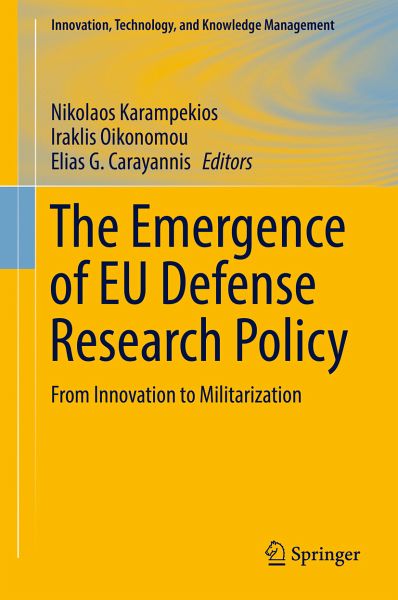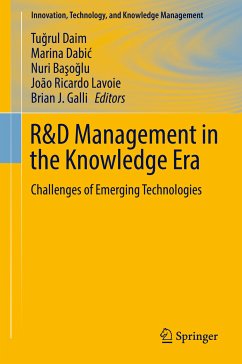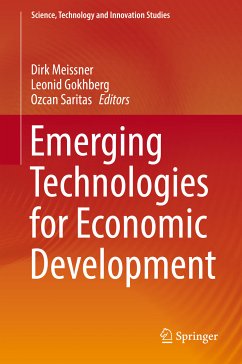
The Emergence of EU Defense Research Policy (eBook, PDF)
From Innovation to Militarization
Redaktion: Karampekios, Nikolaos; Carayannis, Elias G.; Oikonomou, Iraklis
Versandkostenfrei!
Sofort per Download lieferbar
96,95 €
inkl. MwSt.
Weitere Ausgaben:

PAYBACK Punkte
48 °P sammeln!
This book explores European security and defense R&D policy, unveiling the strategic, industrial, institutional and ideational sources of the European Commission's military research initiative. Starting from a well-defined empirical epicentre-the rise of non-civilian R&D priorities in the European Union-this book covers interrelated themes and topics such asapproaches to arms production and R&D collaborationrelationships between European R&D-related institutionstechnology and research foundations of European security policypast and present European armament collaborationstransatlantic R&D coll...
This book explores European security and defense R&D policy, unveiling the strategic, industrial, institutional and ideational sources of the European Commission's military research initiative. Starting from a well-defined empirical epicentre-the rise of non-civilian R&D priorities in the European Union-this book covers interrelated themes and topics such as
Divided into 5 sections, the enclosed chapters explore the EU technology and innovation policy in regards to security, industrial competitiveness and military capabilities. The terrorist attacks in the US on September 11, 2001 provided a window of opportunity for the introduction of security as a distinct European R&D priority. In fact, since 2002, the Preparatory Action for Security Research (PASR) has funded 45 million euros to 39 research consortia to conduct security R&D. While the idea of pooling defense research efforts and programmes in Europe is not new, the establishment of institutions like the European Defense Agency (EDA) are a major step into institutionalizing European agencies involvement in supporting defense technology research. It is against this backdrop of policy developments that this book is positioned, in addition to addressing some of the political, economic, industrial and philosophical questions that arise.
Featuring contributions from a variety of academic fields and industries, this book will be of interest to scholars, researchers, students and policy makers in the fields of security policy, international relations, innovation, European studies and military studies.
- approaches to arms production and R&D collaboration
- relationships between European R&D-related institutions
- technology and research foundations of European security policy
- past and present European armament collaborations
- transatlantic R&D collaboration
- the militarization of border security.
Divided into 5 sections, the enclosed chapters explore the EU technology and innovation policy in regards to security, industrial competitiveness and military capabilities. The terrorist attacks in the US on September 11, 2001 provided a window of opportunity for the introduction of security as a distinct European R&D priority. In fact, since 2002, the Preparatory Action for Security Research (PASR) has funded 45 million euros to 39 research consortia to conduct security R&D. While the idea of pooling defense research efforts and programmes in Europe is not new, the establishment of institutions like the European Defense Agency (EDA) are a major step into institutionalizing European agencies involvement in supporting defense technology research. It is against this backdrop of policy developments that this book is positioned, in addition to addressing some of the political, economic, industrial and philosophical questions that arise.
Featuring contributions from a variety of academic fields and industries, this book will be of interest to scholars, researchers, students and policy makers in the fields of security policy, international relations, innovation, European studies and military studies.
Dieser Download kann aus rechtlichen Gründen nur mit Rechnungsadresse in A, B, BG, CY, CZ, D, DK, EW, E, FIN, F, GR, HR, H, IRL, I, LT, L, LR, M, NL, PL, P, R, S, SLO, SK ausgeliefert werden.












